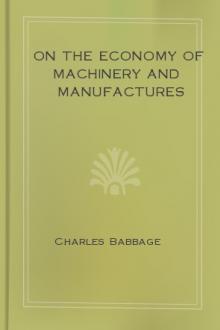Genre Literary Collections. Page - 23

ace: for example, a bathroom, a dining-room, a little parlor or common-room, a room for manual work, a gymnasium and rest-room.
The special characteristic of the equipment of these houses is that it is adapted for children and not adults. They contain not only didactic material specially fitted for the intellectual development of the child, but also a complete equipment for the management of the miniature family. The furniture is light so that the children can move it about, and it is painted in some light color so that the children can wash it with soap and water. There are low tables of various sizes and shapes--square, rectangular and round, large and small. The rectangular shape is the most common as two or more children can work at it together. The seats are small wooden chairs, but there are also small wicker armchairs and sofas.
[Illustration: FIG. 1.--CUPBOARD WITH APPARATUS.]
In the working-room there are two indispensable pieces of furniture. One of these is a very long cupboard

ich seemed to pervade manyestablishments; and having formed such conjectures, the desire torefute or to verify them, gave an additional interest to thepursuit. Several of the principles which I have proposed, appearto me to have been unnoticed before. This was particularly thecase with respect to the explanation I have given of the divisionof labour; but further enquiry satisfied me that I had beenanticipated by M. Gioja, and it is probable that additionalresearch would enable me to trace most of the other principles,which I had thought original, to previous writers, to whose meritI may perhaps be unjust, from my want of acquaintance with thehistorical branch of the subject.
The truth however of the principles I have stated, is of muchmore importance than their origin; and the utility of an enquiryinto them, and of establishing others more correct, if theseshould be erroneous, can scarcely admit of a doubt.
The difficulty of understanding the processes of manufactureshas unfortunately bee

for him, especially at this period, when he was entering manhood and eager to get at the works of contemporary composers. In those times only a small amount of the music that was written, was published. Many of the lesser works were composed merely to grace some social function, with but little thought given them as to their ultimate fate. It was customary to play from manuscript, copies of which were not readily attainable. In a city like Vienna new music was constantly being produced, occasionally at public concerts, but most often at social gatherings. The freemasonry existing among musicians and the wealthy amateurs was such that a musician of any talent was sure to be received, and put on a friendly footing. No other city in Europe afforded such opportunities for musical culture as did Vienna. It was the home of Mozart and Haydn and a host of lesser composers, as well as instrumentalists and singers. Music in one form or another was the chief diversion of the better classes, the wealthier of whom maintai

session. The truth is palpable, that our men are not all gentlemen, nor our women all ladies, nor our children all docile and obliging. In that small and insignificant circle which is called 'Society,' which, small and insignificant as it is, gives the tone to the manners of the nation, the chief efforts seem to be, to cleanse the outside of the platter, to conceal defects by gloss and glitter. Its theory of politeness and its maxims of behavior are drawn from a state of things so different from that which here prevails, that they produce in us little besides an exaggerated ungracefulness, a painful constraint, a complete artificiality of conduct and character. We are trying to shine in borrowed plumes. We would glisten with foreign varnish. To produce an effect is our endeavor. We prefer to act, rather than live. The politeness which is based on sincerity, good-will, self-conquest, and a minute, habitual regard for the rights of others, is not, we fear, the politeness which finds f

y of the undertaking increase admiration for the remarkable ability with which the task was performed.
Were literary excellence the sole claim of "Democracy in America" to distinction, the splendor of its composition alone would entitle it to high place among the masterpieces of the century. The first chapter, upon the exterior form of North America, as the theatre upon which the great drama is to be enacted, for graphic and picturesque description of the physical characteristics of the continent is not surpassed in literature: nor is there any subdivision of the work in which the severest philosophy is not invested with the grace of poetry, and the driest statistics with the charm of romance. Western emigration seemed commonplace and prosaic till M. de Tocqueville said, "This gradual and continuous progress of the European race toward the Rocky Mountains has the solemnity of a providential event; it is like a deluge of men rising unabatedly, and daily driven onward by the hand of God!"
The mind

ase of many animals itseems as though the necessity of a fluid environment for living matterdid not apply, for the superficial cells of the skin have no fluidaround them; these cells, however, are dead, and serve merely amechanical or protective purpose. All the living cells of the skin andall the cells beneath this have fluid around them.
Living matter occurs always in the form of small masses called"cells," which are the living units. The cells vary in form, structureand size, some being so large that they can be seen with the nakedeye, while others are so small that they cannot be distinctly seenwith the highest power of the microscope. The living thing or organismmay be composed of a single cell or, in the case of the higher animalsand plants, may be formed of great numbers of cells, those of asimilar character being combined in masses to form organs such as theliver and brain.
In each cell there is a differentiated area constituting a specialstructure, the nucleus, which contains a pe

ll, in answer to suggestive questions, what some of the other words and groups of words do (the questions on the selections in the Supplement may aid the teacher). The pupils may then write out the story in full form. To vary the exercise, the teacher might read the story and let the pupils write out the short sentences.
A TALK ON LANGUAGE.
The teacher is recommended, before assigning any lesson, to occupy the time of at least two or three recitations, in talking with his pupils about language, always remembering that, in order to secure the interest of his class, he must allow his pupils to take an active part in the exercise. The teacher should guide the thought of his class; but, if he attempt to do all the talking, he will find, when he concludes, that he has been left to do all the thinking.
We give below a few hints in conducting this talk on language, but the teacher is not expected to confine himself to them. He will, of course, be compelled, in some instanc

or humiliation, the information involved may be denied, disavowed, negated, or shifted in meaning to prevent a reactive state of rage, depression, or shame." [Ibid.]
The second mechanism which the narcissist employees is the active pursuit of Narcissistic Supply. The narcissist actively seeks to furnish himself with an endless supply of admiration, adulation, affirmation and attention. As opposed to common opinion (which infiltrated literature) - the narcissist is content to have ANY kind of attention. If fame cannot be had - notoriety would do. The narcissist is obsessed with the obtaining of Narcissistic Supply, he is addicted to it. His behaviour in its pursuit is impulsive and compulsive.
"The hazard is not simply guilt because ideals have not been met. Rather, any loss of a good and coherent self-feeling is associated with intensely experienced emotions such as shame and depression, plus an anguished sense of helplessness and disorientation. To prevent this state, the narcissistic personal

ound the chairs in a long line. Suddenly the music stops, and directly it does so every one tries to sit down. As there is one player too many some one must necessarily be left without a chair. That player has therefore to leave the game, another chair is taken away, and the music begins again. So on to the end, a chair and a player going after each round. The winner of the game is the one who, when only one chair is left, gets it. It is against the rules to move the chairs. A piano, it ought to be pointed out, is not absolutely necessary. Any form of music will do; or if there is no instrument some one may sing, or read aloud. But a piano is best, and the pianist ought now and then to pretend to stop, because this makes it more exciting for the players.
Stir the Mash
This is another variety of "Going to Jerusalem." The chairs are placed against the wall in a row, one fewer than the players. One of the players sits down in the middle of the room with a stick and pretends to be stirring a bowl of

he same goal.
As to physical things, chemic, mineralogic, astronomic, it is not customary to say that they act to achieve Truth or Entity, but it is understood that all motions are toward Equilibrium: that there is no motion except toward Equilibrium, of course always away from some other approximation to Equilibrium.
All biologic phenomena act to adjust: there are no biologic actions other than adjustments.
Adjustment is another name for Equilibrium. Equilibrium is the Universal, or that which has nothing external to derange it.
But that all that we call "being" is motion: and that all motion is the expression, not of equilibrium, but of equilibrating, or of equilibrium unattained: that life-motions are expressions of equilibrium unattained: that all thought relates to the unattained: that to have what is called being in our quasi-state, is not to be in the positive sense, or is to be intermediate to Equilibrium and Inequilibrium.
So then:
That all phenomena in our i